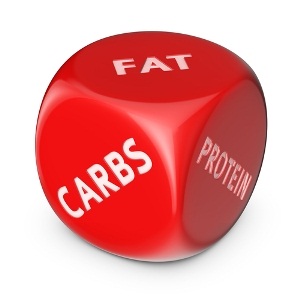
Ever since Tim Noakes shocked the nutrition establishment by doing a total about-face regarding nutrition, there has been a serious battle among academics.
Prof Noakes switched from advocating the use of carbohydrates to fuel athletic performance to becoming a low-carbohydrate, high-protein and high-fat protagonist.
By challenging accepted dietary advice, which advocates the use of a balanced, energy-reduced and fat-reduced diet to lose weight and/or treat conditions such as diabetes and heart disease, Prof Noakes waved a bright red flag at the establishment.
Read: What Tim Noakes eats
Why a respected scientist who always kept within the bounds of his discipline should decide to change his story so radically, remains unclear – but according to the good Professor, he watched his own father die of diabetes and had what may be likened to a “Road to Damascus” experience.
While sudden insights have often spurred great strides in research, the scientific community tends to frown on what is regarded as “anecdotal deductions” and “knee-jerk science”.
Basically the scientific community is accusing Prof Tim Noakes of propounding a potentially dangerous doctrine that will cause more harm than good.
Read: Tim Noakes on the failed heart-disease theory
The Stellenbosch Study
Last week I received a publication describing the results of a review study conducted by the Centre for Evidence Based Health Care at the University of Stellenbosch. The study also investigated “Low carbohydrate diets: Effects on weight loss and heart disease risk factors”. (Naude et al, 2014).
The researchers did what is known as a “systematic review” of the best available research on the effects of low-carb diets (aka high-protein and high-fat diets) on weight loss and heart health (Naude et al, 2014).
The researchers used a systematic review process to separate the “wheat from the chaff”. Studies that are not conducted according to the strict criteria prescribed for this kind of review are discarded.
Read: 'Tim Noakes diet' put to the test
What did the study find?
a) Effects on Weight loss:
- It is the reduction in energy intake in a diet (either due to cutting down on total kilojoules consumed or by omitting some foods) that produces weight loss in overweight and obese people.
- The weight loss experienced by slimmers is the result of the reduced energy intake, no matter how the proteins, fats and carbs are arranged in the diet.
- The average amount of weight lost on the two types of diet varies greatly (the high-protein diet tends to cause rapid and encouraging weight loss at the start of the regimen which fizzles out over time, while low-carb diets tend to produce slow, but steady weight loss over long periods), but at the end of the day, both types of diets produce the same amount of weight loss over longer periods.
Read: Why high-protein diets work
- Because the longest follow-up in weight loss studies is 2 years, no one can predict what the long-term effect of either diet will be.
b) Risk of Heart Disease:
- Because of the lack of follow-up for longer than 2 years, it is impossible to predict which diet will have the most positive effect on heart health and which diet will have a negative effect on heart health.
- The effects measured to date for both types of diets on a variety of risk factors for heart disease such as high blood pressure, cholesterol levels and diabetes in overweight and obese subjects are similar. (Naude et al, 2014)
Conclusion
The abovementioned comparative review study conducted by the University of Stellenbosch has come to the conclusion that as things stand at this moment, neither a balanced slimming diet nor Prof Noakes’ (also Atkins, Banting, Dukan etc.) diet with its high-protein content, has any advantage over the other when it comes to weight loss or effect on heart disease or diabetes.
Perhaps we should keep in mind what Prof Opie (2014) recommended during the recent debate with his erstwhile student: “[Use the] Noakes [diet] until you have lost the weight and then move to the Mediterranean diet.”
Also important to bear in mind is the primary result of the Stellenbosch Study, i.e. that it is the reduction in energy intake (kilocalories or kilojoules) that causes weight loss and that weight loss per se is beneficial for all the degenerative diseases of the body, heart and brain.
Read more:
Tim Noakes on 'The Real Meal Revolution'
Tim Noakes called a 'cholesterol denialist'
Heart Foundation's open letter to Tim Noakes
References:
Carte Blanche (2014). The Big Fat Debate; Naude CE et al, 2014. Low carbohydrate diets: Effects on weight loss and heart disease risk factors. Centre for Evidence Based Health Care, University of Stellenbosch.




 Publications
Publications
 Partners
Partners










